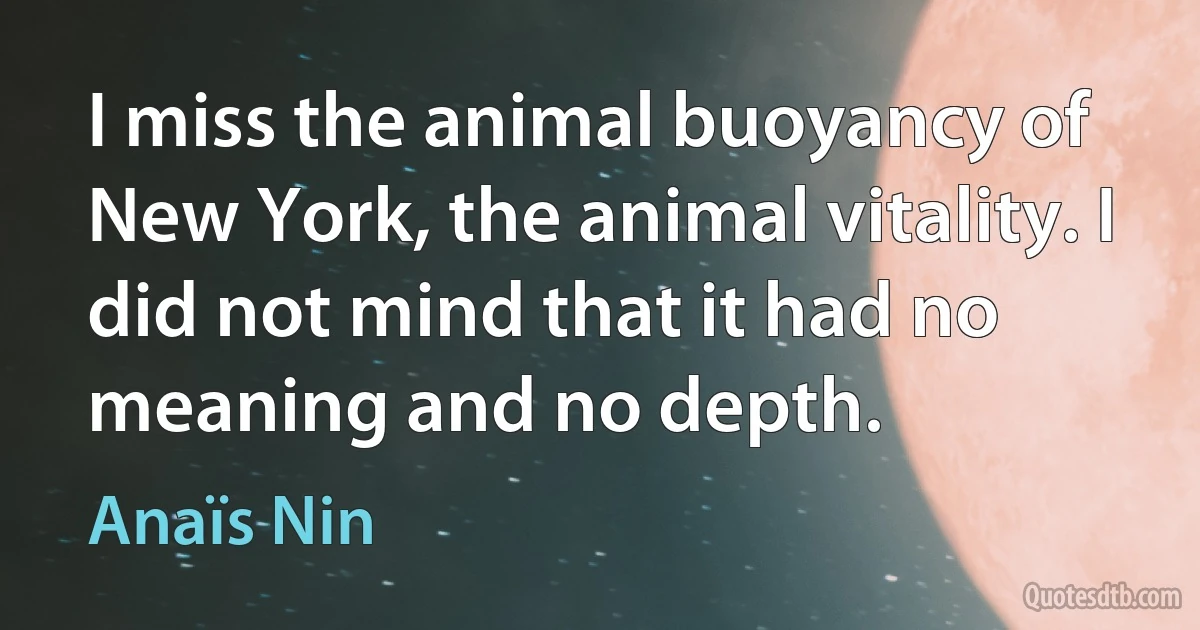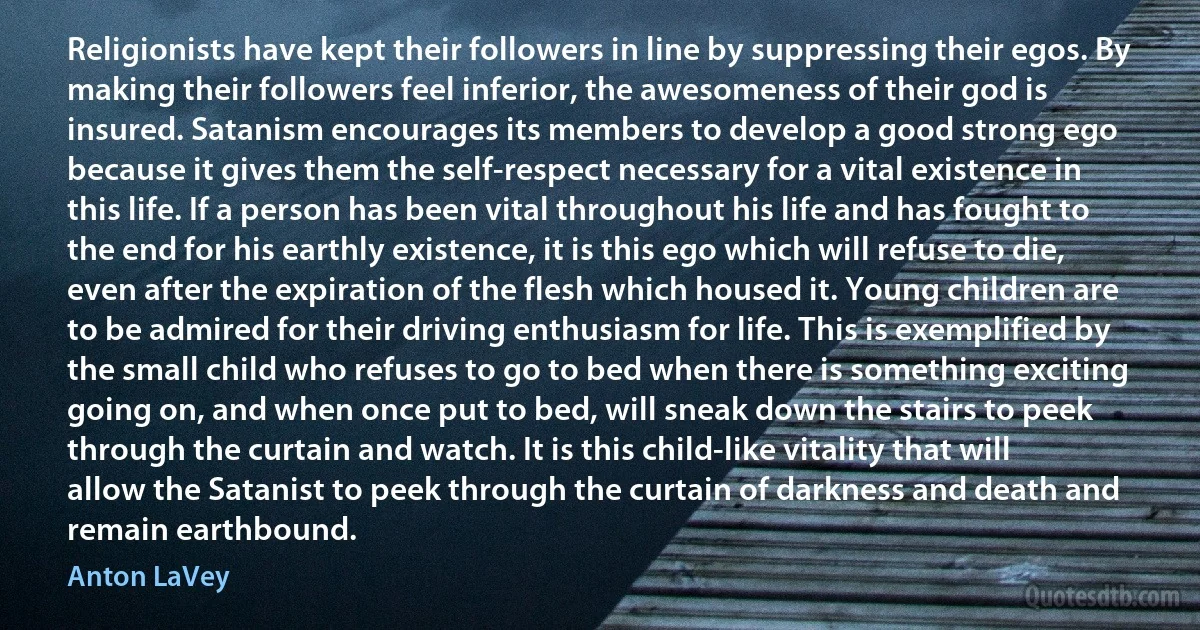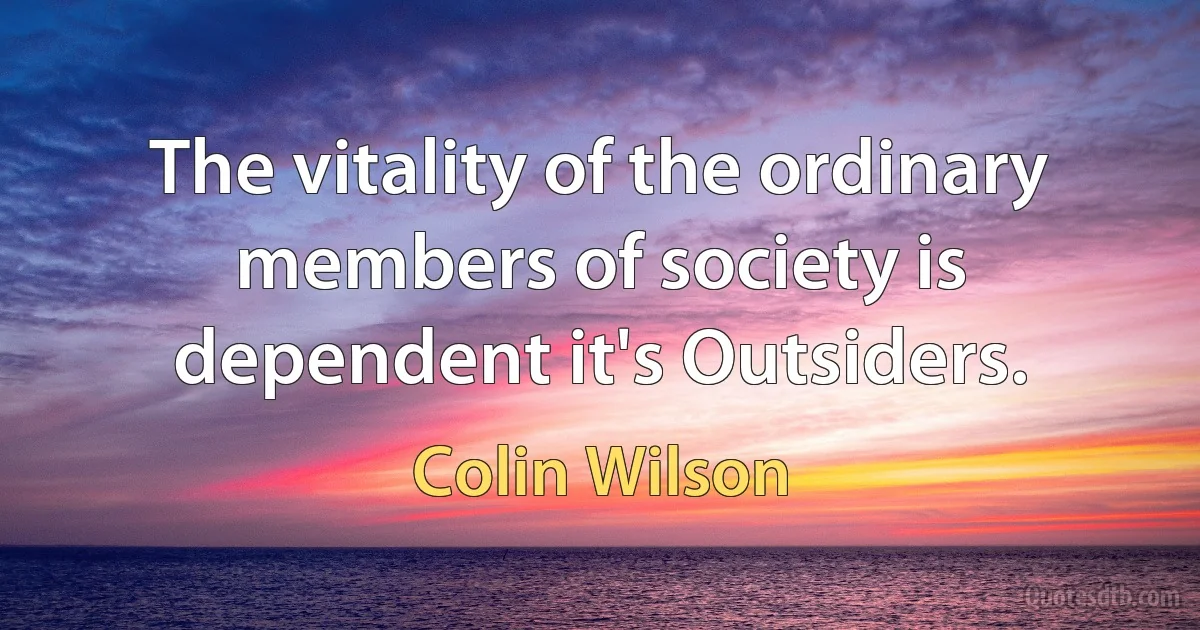Vitality Quotes - page 4
I've been vegan for two years and vegetarian for 20 years. I used to be a dancer, and so health and vitality have always been important to me. I wouldn't say it took any one big event, vegetarianism just always made sense to me. [What farmed animals] endure is just terrible. It's horrible ... Vegan food is soul food in its truest form. Soul food means to feed the soul. And, to me, your soul is your intent. If your intent is pure, you are pure.

Erykah Badu
As governor, I experienced the vitality of life in a booming and free Asian city, saw routinely the best and worst aspects of human nature, and was made to revisit some of the principles in which I have always believed but to which I had rarely given much thought previously. In the darker hours of occasionally fretful nights I found myself face to face with the moral dimensions of political action to a greater extent than ever before.

Chris Patten
Activities that improve human capabilities [can be divided into] five major categories: (1) health facilities and services, broadly conceived to include all expenditures that affect the life expectancy, strength and stamina, and the vigor and vitality of a people; (2) On-the job training, including old-style apprenticeship organized by firms; (3) formally organized education at elementary, secondary and higher levels; (4) study programs for adults that are not organized by firms, including extension programs in agriculture; (5) Migration of individuals and families to adjust to changing job opportunities.

Theodore Schultz
There is an inside and an outside to every form. When they are in special accord, as for instance a nut in its shell or a child in the womb, or in the structure of shells or crystals, or when one senses the architecture of bones in the human figure, then I am most drawn to the effect of light. Every shadow cast by the sun from an ever-varying angle reveals the harmony of the inside to outside. Light gives full play to our tactile perceptions through the experience of our eyes, and the vitality of forms is revealed by the interplay between space and volume.

Barbara Hepworth
Carving is interrelated masses conveying an emotion; a perfect relationship between the mind and the colour, light and weight which is the stone, made by the hand which feels. It must be so essentially sculpture that it can exist in no other way, something completely the right size but which has growth, something still and yet having movement, so very quiet and yet with a real vitality.

Barbara Hepworth
Older children always sit down to paint or write after they have seen a picture or read a story that appeals to them, and attempt to create. So life ought to be a struggle of desire towards adventures whose nobility will fertilise the soul and lead to the conception of new, glorious things. To avoid the ordeal of emotion that leads to the conception is the impulse of death. Sterility is the deadly sin. Today so many of our activities are sterile. Our upper classes are impotent by reason of their soft living. Our lower classes have had their vitality sweated out of them by their filthy labours: they can only bear dead things.

Rebecca West
Sexual intercourse is not intrinsically banal, though pop culture magazines like Esquire and Cosmopolitan would suggest that it is. It is intense, often desperate. The internal landscape is violent upheaval, a wild and ultimately cruel disregard of human individuality, a brazen, high-strung wanting that is absolute and imperishable, not attached to personality, no respecter of boundaries; ending not in sexual climax but in a human tragedy of failed relationships, vengeful bitterness in an aftermath of sexual heat, personality corroded by too much endurance of undesired, habitual intercourse, conflict, a wearing away of vitality in the numbness finally of habit or compulsion or the loneliness of separation.

Andrea Dworkin
We might as well hope for the termination of the struggle for existence by which, some philosophers tell us, the existence or the modification of the various species of organized beings upon our planet are determined. The battle for political power is merely an effort, well or ill-judged, on the part of the classes who wage it to better or to secure their own position. Unless our social activity shall have become paralyzed, and the nation shall have lost its vitality, this battle must continue to rage. In this sense the question of reform, that is to say, the question of relative class power, can never be settled.

Robert Gascoyne-Cecil, 3rd Marquess of Salisbury
The one thing that the public dislike is novelty. Any attempt to extend the subject matter of art is extremely distasteful to the public; and yet the vitality and progress of art depend in a large measure on the continual extension of subject-matter. The public dislike novelty because they are afraid of it. It represents to them a mode of Individualism, an assertion on the part of the artist that he selects his own subject, and treats it as he chooses.

Oscar Wilde
Birds' songs express joy, beauty, and purity, and evoke in us vitality and love. So many beings in the universe love us unconditionally. The trees, the water, and the air don't ask anything of us; they just love us. Even though we need this kind of love, we continue to destroy them. By destroying the animals, the air, and the trees, we are destroying ourselves.

Nhat Hanh
Socrates woke to the ideal of dispassionate intelligence, Jesus to the ideal of passionate yet self-oblivious worship. Socrates urged intellectual integrity, Jesus integrity of will. Each, of course, though starting with a different emphasis, involved the other.
Unfortunately both these ideals demanded of the human brain a degree of vitality and coherence of which the nervous system of the First Men was never really capable.

Olaf Stapledon
There can be no equality or opportunity, the first essential of justice in the body politic, if men and women and children be not shielded in their lives, their very vitality, from the consequences of great industrial and social processes which they can not alter, control, or singly cope with.

Woodrow Wilson
Early artists considered the human body, that forked radish, that defenseless starfish, a poor vehicle for the expression of energy, compared to the muscle-rippling bull and the streamlined antelope. Once more it was the Greeks, by their idealization of man, who turned the human body into an incarnation of energy, to us the most satisfying of all, for although it can never attain the uninhibited physical flow of the animal, its movements concern us more closely. Through art we can relive them in our own bodies, and achieve thereby that enhanced vitality which all thinkers on art, from Goethe to Berenson, have recognized as one of the chief sources of aesthetic pleasure.

Kenneth Clark
Part of the strength of science is that it has tended to attract individuals who love knowledge and the creation of it. Just as important to the integrity of science have been the unwritten rules of the game. These provide recognition and approbation for work which is imaginative and accurate, and apathy or criticism for the trivial or inaccurate... Thus, it is the communication process which is at the core of the vitality and integrity of science...

Philip Abelson



